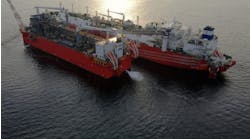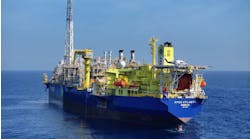ROG.e 2024: Harnessing digital applications to evolve human factors, innovation and governance in Brazil’s oil, gas sector
By Rodrigo Chamusca, Ocyan
The oil and gas industry has embraced technologies like Big Data analytics, remote monitoring, artificial intelligence, Internet of Things sensors, digital twins, robotic process automation software, cloud computing, additive manufacturing, drones, video analytics and mixed realities. These tools enhance value generation and help companies adapt to market demands.
Innovation in the oil and gas sector has evolved, with Brazilian companies integrating these technologies into core strategies and creating R&D departments. Challenges in governance and innovation include assessing new technologies without prior knowledge, risk appetite and resistance to change. Cultural shifts within organizations are necessary but often met with employee resistance.
Employee apprehensions about job displacement hinder technological adoption and innovation. A lack of understanding and skepticism about new technologies exacerbates this issue. Adapting to new tools can create a skills gap, making recruitment and retention difficult. The industry also struggles to attract young talent, as it doesn’t align with their values and career goals.
Investing in an innovation-driven culture is crucial for market adaptation and competitive advantage. Benchmarking companies promote this through training, agile solutions, pilot projects, innovation workshops and incentives. Team involvement from the start increases engagement, motivation and success, leading to efficient solutions.
Success in the modern oil and gas industry requires continuous adaptation to new technologies, regulations and business models, necessitating ongoing training and development.
Digital transformation & new skills opportunities
Some new skills are becoming more important and being frequently demanded and prioritized by most organizations, such as digital literacy, active learning and learning strategies, emotional intelligence, critical thinking and analysis, and complex problem-solving. Demand for these skills reflects changing needs of organizations in response to technological advancements.
Despite challenges, digitalization creates opportunities to address industry issues by enhancing human capabilities, allowing faster and more efficient decision-making, processing large amounts of data, improving information access and “our memory,” and enabling workplace flexibility including remote work.
Digital journey: research, development and innovation
At Ocyan, a Brazilian oil and gas service provider, an Innovation Management System with a well-defined governance model was implemented to address challenges and maximize success. A value generation stream is followed like a production line, using innovation vehicles based on strategy and context. Portfolio management is conducted through indicators and tools to validate results, reducing risks, improving efficiency and strengthening investor confidence.
Innovation vehicles aim to align business strategy with development and partnership needs. The company builds trust with stakeholders by partnering with startups and academic institutions to co-develop innovative solutions.
Ocyan also co-develops digital solutions with strategic partners and sells new technologies focused on asset performance management, operational intelligence and energy efficiency. RD&I projects are crucial for developing deeptech solutions, especially disruptive technologies requiring high investment and long development timelines.
Importance of leadership
Digital transformation optimizes operations, reduces costs and unlocks new value in the oil and gas industry. However, companies must address cultural and organizational challenges to fully benefit from digitalization.
Ocyan leaders establish vision and strategy, allocate resources, and align organizational culture with innovation objectives. They foster an environment of experimentation and collaboration, ensuring governance policies balance innovation, compliance and business risk.
Effective leadership motivates teams and ensures innovation projects align with company values and objectives.




